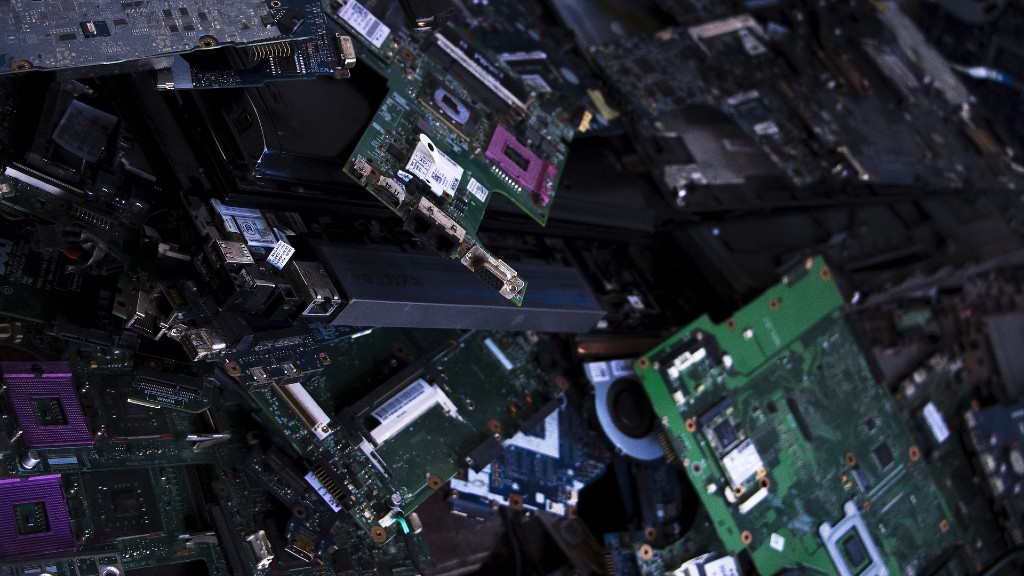$1 million awarded to support packaging solutions to tackle causes of ocean plastic pollution
Combined with the necessary infrastructure, innovations could prevent the creation of the equivalent of 100 garbage bags per second
At the World Economic Forum Annual Meeting in Davos, the Ellen MacArthur Foundation, with the support of Wendy Schmidt, lead philanthropic partner of the foundation's New Plastics Economy initiative, is awarding a total of $1 million to five new recyclable and compostable packaging solutions to hlep stop plastics becoming waste.
According to a press release issued by the foundation, clean-ups play an essential role in dealing with the symptoms of ocean plastics pollution, but they do not address the causes. They cannot keep pace with the rising tide of plastic pollution. More than 8 million tonnes of plastics enter the ocean each year, yet the three biggest clean-ups deal with just 0.5% of that volume.
To tackle the plastic pollution crisis, there is an urgent need for innovators, industry and governments to develop systemic solutions that prevent plastic from becoming waste in the first place. That is why the Ellen MacArthur Foundation launched its $2 million New Plastics Economy Innovation Prize, funded by Wendy Schmidt, Lead Philanthropic Partner of the foundation's New Plastics Economy initiative, and operated by challenge partner NineSigma, who helped identify potential solutions from around the world.
At the World Economic Forum Annual Meeting in Davos, held January 23, the Ellen MacArthur Foundation and NineSigma announced the winners of the Circular Materials Challenge . Combined with the necessary infrastructure, their innovations could prevent the equivalent of 100 garbage bags per second of plastic waste being created².
They target the lightweight, flexible packaging used for products including sauces, fresh coffee, and snacks, which is too hard or expensive to recycle because it is made of several layers of different materials. The winners will each receive a $200,000 share of the $1 million prize.
Together with the winners of the $1 million Circular Design Challenge, announced in October, these innovations will join a 12 month accelerator programme, in collaboration with Think Beyond Plastic, working with experts to make their innovations marketable at scale.
Category 1: Make unrecyclable packaging recyclable
The University of Pittsburgh team applies nano-engineering to create a recyclable material that can replace complex multi-layered packaging that is unrecyclable. This mimics the way nature uses just a few molecular building blocks to create a huge variety of materials.
Aronax Technologies Spain proposes a magnetic additive that can be applied to a material, creating better air and moisture insulation - making it suitable to protect sensitive products such as coffee and medical products, while still being possible to recycle.
Category 2: Combining materials that nature can handle
Working together, Full Cycle Bioplastics, Elk Packaging, and Associated Labels and Packaging make a compostable high-performance material from renewable materials, agricultural by-products and food waste to pack a broad range of products from granola bars and crisps to laundry detergent.
The VTT Technical Research Centre of Finland has created a compostable multi-layer material from agricultural and forestry by-products, which could be used for stand-up foodpouches for products like muesli, nuts, dried fruit and rice.
The Fraunhofer Institute for Silicate Research ISC has developed a coating with silicate and biopolymers that can be used in many different food packaging applications protecting biopolymer packaging and food against premature degradation and is fully compostable.
"The technical innovations developed by our winners are exactly what is needed to begin to address the wasteful material culture of the past century that is creating increasing amounts of microplastics and plastic debris on our shorelines, in our oceans, landfills and even our own bodies," said Wendy Schmidt . "I am excited to see the winners of this prize money begin the important work in this year's accelerator program, with the goal of moving these exciting breakthroughs into the marketplace."
Akihiko Suwa, CEO of NineSigma, said: "Disruptive innovation starts with selection of the world's best ideas and technologies. It becomes reality only when there is sufficient additional development support. We are excited to be involved in the New Plastics Economy initiative because the innovators enter a 12-month acceleration programme to demonstrate their materials are viable alternatives to non-recyclable packaging."
For these innovations to have greatest impact, businesses and governments must work together to create a system in which plastics do not become waste, by committing to scale up such innovation and provide the necessary collection and sorting infrastructure to support it. That is why the Ellen MacArthur Foundation welcomes the latest steps from leading businesses and the French and UK governments towards creating a circular economy for plastics.
Today, the list of major brands and retailers working towards using 100% reusable, recyclable or compostable packaging by 2025 or earlier has grown to 10, including: Ecover, evian, L'Oréal, Mars, M&S, PepsiCo, The Coca-Cola Company, Unilever, Walmart and Werner & Mertz. Together, these companies represent the production of around 6 million tonnes of plastic packaging per year.
Paul Polman, CEO Unilever, said: "It is welcome news that many other major companies are making their own commitments to address ocean plastic waste. Yet as a consumer goods industry, we need to go much further, much faster, in addressing the challenge of single use plastics by leading a transition away from the linear take-make-dispose model of consumption, to one which is truly circular by design."
In December the French government reaffirmed an important commitment towards a systemic solution, by pledging to recycle 100% of plastics by 2025.
Brune Poirson, Secretary of State to the Minister for the Ecological and Inclusive Transition, France said: "The circular economy has the potential to decouple economic development from pollution and the consumption of finite resources. That's why the French Government will announce a circular economy roadmap in March 2018, and has already made the ambitious commitment to cut landfill rate by 50% and recycle 100% of all plastics by 2025. This will increase competitiveness, spur innovation, and create jobs. Let's get it done, together."
In the UK, WRAP and the Ellen MacArthur Foundation have announced a partnership to establish the first national implementation initiative of the New Plastics Economy in the country, a unique government-backed collaboration bringing together businesses, governments and other stakeholders to make step changes in creating and implementing circular economy solutions to plastic waste.
These significant steps provide real examples of what is needed to create a system in which plastics do not become waste. They demonstrate an emerging consensus to tackle the causes of the waste plastic problem and will help to inspire further innovation.
Others around the world must follow their lead. Dame Ellen MacArthur said: "These winning innovations show what's possible when the principles of a circular economy are embraced. Clean-ups continue to play an important role in dealing with the consequences of the waste plastic crisis, but we know we must do more. We urgently need solutions that address the root causes of the problem, not just the symptoms.
"In a New Plastics Economy, plastics will never become waste or enter the ocean in the first place," continued MacArthur. "To get there will require new levels of commitment and collaboration from industry, governments, designers and startups. I hope these innovations will inspire even more progress, helping to build a system in which all plastic materials are reused, recycled or safely composted."



